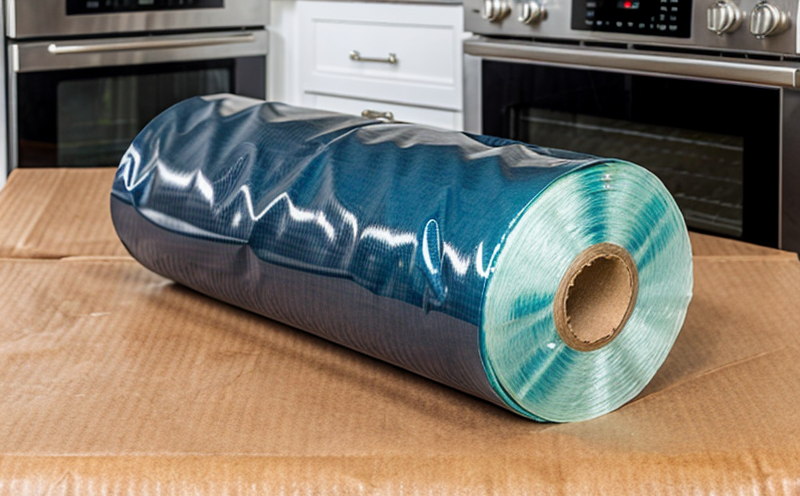ASTM D6400 Compostability Testing of Household Plastic Covers
The ASTM D6400 standard is a widely recognized protocol designed to assess the biodegradability and compostability of materials intended for use in municipal composting facilities. This test focuses on ensuring that products decompose under controlled conditions, leaving behind minimal non-degradable residue. In the context of household plastic covers, this testing ensures that these items are environmentally friendly, contributing positively to waste management efforts.
Household plastic covers, such as those used for garbage bags or food storage, often come into contact with organic waste during their lifecycle. For these products to be considered compostable according to ASTM D6400, they must meet stringent criteria regarding biodegradation and disintegration rates within a defined time frame. The test involves burying the specimen in compost under controlled conditions and monitoring its decomposition.
The testing process typically begins with preparing the samples by cutting them into standard-sized pieces suitable for analysis. Specimens are then placed in an industrial composting environment, where they remain for several months while being regularly monitored for changes in mass loss and biodegradation levels. Compliance is determined based on specific criteria outlined in ASTM D6400, which include:
- Mass loss exceeding 90% after a minimum of six months.
- Biodegradation reaching at least 60% over the same period.
- No harmful residues detected upon final analysis.
The importance of this testing cannot be overstated, especially in light of increasing global concerns about plastic pollution and its impact on ecosystems. By ensuring that household plastic covers meet ASTM D6400 standards, manufacturers contribute to sustainable waste management practices and support a circular economy.
Why It Matters
The significance of ASTM D6400 compostability testing extends beyond mere compliance; it plays a crucial role in advancing environmental sustainability. This testing ensures that products designed for use within household settings do not end up as harmful waste in landfills or oceans. Instead, they can contribute to the natural cycle of decomposition, enriching soil and reducing overall environmental impact.
For quality managers and compliance officers, meeting these standards is essential for maintaining a positive brand image and ensuring regulatory adherence. R&D engineers benefit from understanding how materials behave under compost conditions, allowing them to innovate more sustainable solutions. Additionally, procurement teams can leverage this information when selecting suppliers who adhere to rigorous environmental standards.
Compliance with ASTM D6400 also opens up market opportunities for companies committed to sustainability. As consumer demand for eco-friendly products grows, offering certified compostable household plastic covers becomes a competitive advantage. Moreover, it demonstrates corporate responsibility towards addressing climate change and reducing waste.
Benefits
- Enhances product sustainability by ensuring compliance with international standards.
- Maintains brand reputation through responsible environmental practices.
- Promotes innovation in material science to develop more sustainable products.
- Facilitates easier waste management and contributes positively to landfill reduction efforts.
- Supports regulatory compliance, avoiding potential legal issues related to non-compliance.
- Boosts consumer confidence by providing evidence of environmental responsibility.
- Paves the way for broader market acceptance and increased sales opportunities.
Eurolab Advantages
Eurolab offers unparalleled expertise in polymer & plastics testing, leveraging advanced instrumentation and experienced staff to deliver accurate results. Our state-of-the-art facilities are equipped with the latest technology necessary for precise ASTM D6400 compostability assessments.
Our team of highly qualified professionals ensures that every aspect of your project receives dedicated attention from initial consultation through final report generation. We understand the complexities involved in interpreting test results correctly and can provide clear guidance on how to improve product performance based on our findings.
Choosing Eurolab means accessing comprehensive support tailored specifically for your needs, whether you're an established company looking to expand into new markets or a startup aiming to introduce innovative products. Our commitment to excellence guarantees that you receive reliable data and actionable insights that drive informed decision-making processes.





